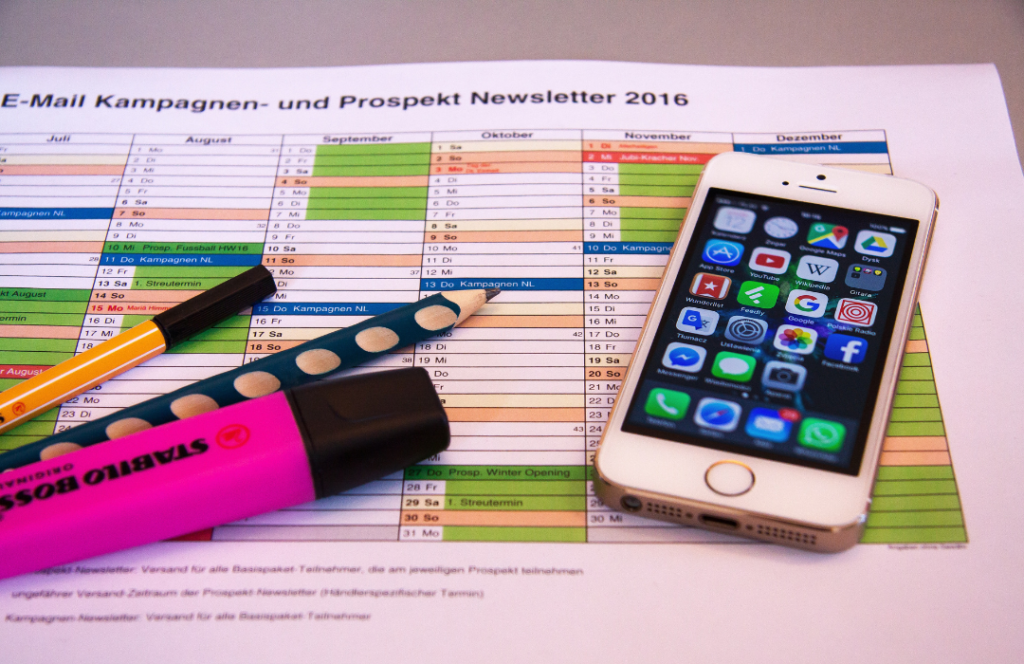This post will highlight the most common blogging mistakes that many people make, so you can learn how to avoid them and what to do instead.
Having a blog is super important for your business. It’s like your online voice that can help you connect with people interested in what you have to say or sell.
Related: 11 Compelling Reasons Why Your Business Should Have A Blog
Blogs are the most effective way to get more people to visit your website without spending a ton of money on ads. Plus, they help you build trust with your prospects and customers over time, which is gold in the world of business.
But many people, and you could be one of them, make mistakes in blogging that stop them from growing their online presence effectively.
In this blog, I’m going to talk about those common mistakes. But don’t worry! I won’t leave you hanging. I’ll also give you some super helpful tips on what to do instead. These tips will help you use your blog to make your business grow and share valuable things with other people.
So, let’s dive right in and make your blogging adventure a big success!
1. Not Publishing Your Blog Right Away

A very common mistake that lots of businesses and bloggers make is waiting too long to put their blog out into the world. They often think they need to have a bunch of blogs ready or make their website look absolutely perfect before hitting that publish button.
But, waiting like this is not a good idea. While you’re waiting and trying to make everything perfect, many others have already started their blogs. This means they have more opportunities to show up on search engines like Google.
Search engines need some time to notice your blog and rank it higher in their search results. The longer you’re not on there, the longer it will take for your blog to get a good ranking.
So, what can you do instead? Just publish your blog as soon as you can. You don’t need to have a whole bunch of blogs ready. Even if you start with just one blog, that’s perfectly fine. What’s more important is that you keep publishing regularly. This way, you’ll get a head start and increase your chances of getting noticed by search engines and, of course, by your audience.
Related: 20 Common Blogging Myths That Stop You From Starting And Growing
2. Putting Yourself or Business in the Center of Your Blogs
Here’s another common mistake: thinking that everyone will be super interested in you or your business right from the start. The truth is, when you’re just starting out, not many people will care about you or what your business has to offer.
If you only talk about yourself, your hobbies, or how your business got started in your blogs, chances are people will get bored. They want to know what’s in it for them, how you can help them solve their problems or answer their questions.
What you can do instead is to research what questions your target audience has and write about those topics. Find out what’s bothering them or what they’re curious about. One way to do this is by using the ‘People Also Ask’ feature on Google. It’s a goldmine of questions people are looking for answers to. When you provide valuable information that addresses their concerns, you’ll grab their attention and keep them coming back for more.
Related: Success Comes From Understanding Your Customers’ Problems
3. Totally Ignoring the SEO Keywords

SEO stands for Search Engine Optimization, and it’s super important for your blog to show up when people search online.
Related: Crucial SEO: Understanding Its Importance In Digital Marketing
You might have a ton of knowledge to share, but if you’re not using the words that people are actually typing into search engines, your blogs might as well be invisible to them.
So, what can you do instead? It’s simple: before you start writing, do some research. Find out what topics people are interested in, and more importantly, what keywords they use to search for those topics.
Then, make sure to use those keywords in your blog. This way, when people search for information related to your blog, they’ll have a better chance of finding and reading what you’ve written.
4. Making It Too Hard to Read
Writing blogs is not the same as writing college essays. If you make your sentences too long or your paragraphs too lengthy, people might not bother reading your blog, no matter how good or valuable it is.
Here’s a simple tip: make it easy for people to read your blog. Instead of long, complicated sentences, use shorter ones. Break up your text into smaller paragraphs. A good rule of thumb is to have just 2-3 sentences in one line. This makes it much easier for readers to follow along and stay engaged with your content.
5. Having Grammar Mistakes
Here’s another pitfall to watch out for – grammar mistakes. If your blog is riddled with errors in punctuation or capitalization, it can make your writing seem unprofessional to readers.
But don’t worry; there’s a simple solution. You can use grammar correction apps like Grammarly to proofread your writing. These tools can help you spot and fix grammar mistakes, ensuring that your blog looks polished and professional to your readers.
6. Having Bad Formatting

Formatting is super important when it comes to blogging. Even if you have the best-written and most informative content out there, poor formatting can turn readers away.
Nobody wants to read a blog post that looks all jumbled up on the screen. It’s like trying to find your way in a messy room.
Sometimes, when you focus so much on the words you’re writing, you might forget to make your blog look easy to read. But here’s what you can do instead:
- Use subheadings: Break up your blog into sections with clear subheadings (H1, H2, H3). This helps readers quickly find the information they’re interested in.
- Page breaks: Don’t forget to use page breaks to separate different parts of your blog. It’s like turning the page in a book, and it keeps things organized.
- Include images: Images not only make your blog look more interesting but also help to explain things better.
- Bullet points: Use bullet points to make lists. They’re great for summarizing information in a clear and concise way.
- Information boxes: Information boxes can be used to make important points stand out. It’s highlighting the most crucial bits of your blog.
7. Stressing Out Too Much about Word Count
Word count can sometimes feel like a big deal when you’re writing blogs, especially if you want your blog to rank well on search engines. But it’s not the only thing that matters in the blogging world.
Instead of obsessing over word count, focus on the quality of your blogs. What really counts is how valuable and helpful your content is for your readers. If your blog provides useful information and answers questions effectively, the word count becomes less important.
It’s better to have a shorter, well-written blog that genuinely helps your readers than a long, rambling one that doesn’t provide much value. So, shift your focus to creating high-quality content, and you’ll find that word count won’t be as crucial as you might think.
Related: Long-Form Vs. Short-Form Content For Your Business Needs
8. Adding Too Much Jargon

Sometimes, when you’re writing blogs for your business, you might feel like using fancy, professional-sounding words or uncommon terms will make you seem like an expert. But it’s not the right approach!
Using too much jargon or complex language can make it really hard and confusing for people to understand what you’re saying. If your readers can’t understand your blogs, they probably won’t stick around to read them.
Here’s a better approach: use simple and easy-to-understand words that most people can grasp. If you must use words that might confuse your readers, try to explain what they mean.
You can make your blogs more reader-friendly by using tools like the Hemingway Editor. Aim to write your blog as if you’re talking to someone in grades 7 to 9. This way, you’ll make your content accessible to a wider audience and keep them engaged.
9. Creating Not Click-Worthy Titles
Even if your blog is packed with valuable information, if you have dull or uninteresting titles, people might not click to discover what you’ve written.
Related: 17 Insanely Catchy Blog Post Titles That’ll Explode Your Traffic
So, what can you do instead? Here are some tips for creating click-worthy titles:
- Include your SEO keywords: Incorporate the keywords that people are searching for. This helps your blog show up in search results.
For example:
Keyword: “Healthy Eating Habits”
Title: “10 Essential Healthy Eating Habits for a Balanced Lifestyle” - Use adjectives and exciting language: Sprinkle in some adjectives and exciting words to make your title more appealing.
For example:
Bad Title: “Gardening Tips You Can Apply”
Improved Title: “Discover Proven Gardening Tips for a Lush and Vibrant Garden”
- Lead with the most important part: Put the most important part of your blog in the title. This gives readers a clear idea of what they’ll gain from reading your content.
- Avoid Clickbait: While you want to make your title exciting, don’t go overboard with exaggerations or false promises. It’s important to maintain honesty and credibility.
For example:
Bad Title: “Miracle Cure for All Ailments!”
Improved Title: “Exploring the Science Behind Natural Remedies for Common Ailments”
10. Not Consistent in Posting Blogs

Consistency is key when it comes to blogging. Writing blogs can be fun at the start, but it can become overwhelming when you do it day after day, especially if you don’t see immediate results.
Related: Consistency In Blogging: Why It’s Tough And How To Make It Work
That’s why many bloggers and businesses end up giving up on blogging altogether.
If you don’t publish blogs regularly, you won’t achieve the results you desire, and it can feel like you’re stuck in a never-ending loop.
What can you do instead? Create a content calendar. This calendar will help you plan blog ideas, keywords, and everything related to your blogging schedule. It keeps you organized and ensures that you publish blogs consistently. Content calendar is a roadmap that guides you through your blogging journey, making it more manageable and effective in the long run.
You can download my Content Calendar template in Google Sheets here!!!
11. Not Promoting Your Blogs
Just hitting the “publish” button on your blogs isn’t enough. You might think that people will magically find and read them, but that’s not how it works.
When your blog is new, hardly anyone knows it exists except maybe your family and friends (if you’ve told them). That being said, just publishing your blog doesn’t guarantee that people will read it. You need to promote it actively.
So, you can promote your blog posts on social media platforms. Share them with your followers and use relevant hashtags to reach a wider audience. Email marketing is also a great way to drive traffic to your website and raise awareness about your brand.
12. Not Repurposing Your Existing Content

One common blogging mistake is thinking that you always have to come up with completely new ideas for your blog content. While new content is fantastic, constantly trying to generate fresh ideas can lead to burnout and, in some cases, even make you want to give up.
That’s where repurposing content comes to the rescue. Repurposing allows you to recycle and reuse your existing content, and it has a couple of great benefits. It helps you avoid burnout because you’re not constantly brainstorming new topics. Plus, it allows people on different platforms to discover your valuable content.
What you can do is to take your best-performing blog posts and transform them into various types of content. Think about turning them into podcasts, videos, social media posts, or even informative infographics. This way, you’re making the most out of your existing content, reaching a broader audience, and saving yourself from the burnout blues.
13. Writing About Too Many Topics
It can be tempting to write about anything and everything on your blog, and the thought of limiting yourself to just one topic can seem daunting.
The truth is, that just like when building any online business, finding a niche for your blog is crucial.
Without a clear niche, readers won’t know what to expect from your blog. Your audience is going to get confused if your blog posts are about film photography one week and the next you’re talking about pet care.
Writing about too many topics can also cause damage to your online reputation. It’s hard to believe someone can be an expert on multiple topics, but sticking to just one key area will help position you as a thought leader in your field.
What you can do is before you begin writing your blog posts, take the time to carve out your niche so you know what to blog about. It’s important to find a gap in the market and ensure your niche matches your broader business interests. Find out how to conduct market research here.
14. Spending Too Much Money on Ads
You might think that spending lots of money on ads is the way to get your blogs seen by lots of people. But the truth is, if you spend too much, you might not get much in return.
Instead, consider a different approach. Focus on SEO (Search Engine Optimization) to optimize your blogs and attract organic traffic. While it does take time, it is totally worth it in the long run.
By concentrating on creating high-quality, valuable content and incorporating SEO keywords, you’ll set the stage for long-term success for both you and your business.
15. Comparing Your Blogs to Others

When you’re just starting your blog, it’s common to compare yourself to others who have been doing it for a while. You might think, “They’re big bloggers, and I’ll never catch up to them.”
Comparing yourself to others isn’t fair, especially to you. It’s like comparing the first chapter of your book to someone else’s 10th or 20th chapter. It doesn’t make sense, right?
Everyone starts small at the beginning. Those big bloggers you admire were once small too, just like you are now. They began with their own chapter one and worked their way up.
So instead of looking at other blogs and feeling discouraged, focus on creating valuable content for your audience. Understand that good things take time to grow and produce results.
Blogging is like planting a seed; it needs time and care to become a big, strong tree. Your blog will grow too if you nurture it with dedication and patience.
Wrapping It Up
In the world of blogging, we’ve explored some common mistakes that can hinder your journey to success. It’s crucial to avoid these pitfalls if you want to make the most out of your blogging efforts.
Remember not to wait too long to publish your blogs, as time is of the essence in the digital realm. Putting yourself in your audience’s shoes and addressing their questions and concerns will help you create engaging content.
Don’t overlook the importance of SEO keywords, as they can significantly impact your blog’s visibility. Craft click-worthy titles that accurately represent your content without resorting to clickbait.
Maintain consistency in your blogging schedule and repurpose existing content to keep the creative spark alive without experiencing burnout. Promote your blogs actively, and rely on organic growth through valuable content rather than overspending on ads.
Lastly, resist the urge to compare your blog’s early chapters to others who are further along. Remember, even the biggest bloggers started small.
By avoiding these mistakes and following these tips, your blogging journey can be not only enjoyable but also successful in reaching and engaging with your target audience. Keep in mind that, like a growing tree, your blog will flourish with time, effort, and dedication.




